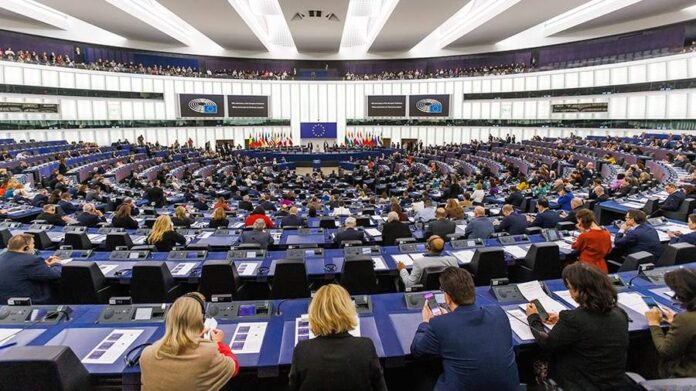BRUSSELS(LP Correspondent)-The European Parliament is set to vote on a draft resolution concerning Central Asia at its inaugural session of the year in Strasbourg on January 17, 2024.
The primary aim of the draft resolution, prepared by Karsten Lucke, the rapporteur of the European Parliament Committee for Foreign Affairs, is to urge the countries in the region to adhere to international human rights obligations.
The draft resolution notably highlights concerns about the prevalent impunity for human rights abuses, the persecution of journalists, bloggers, human rights and civil society activists under accusations of alleged extremism, spreading false information, and the lack of impartial investigations into claims of torture and other human rights violations.
The resolution also encourages European Union delegations in Central Asian nations to actively monitor local conditions, attend court proceedings, collaborate with human rights activists, respond to human rights abuses and political persecution, and visit political prisoners.
Central Asia is progressively gaining importance for the European Union (EU). The EU has consistently strengthened diplomatic ties with the region while simultaneously increasing development aid. Reportedly, European trade and investment have positioned the EU as the leading economic player in Central Asia, surpassing Russia and China.
Since the implementation of the EU Central Asia Strategy in 2019, cooperation between the EU and Central Asia has further developed in numerous areas, serving as a model for a multilateral partnership for resilience, prosperity, and sustainability. Both parties have expressed interest in enhancing their engagement. New initiatives, including the EU’s Global Gateway and the Green Deal, offer a framework for green and digital transitions while boosting trade, investment, and connectivity.
A joint roadmap for deepening relations between the EU and Central Asia, based on discussions between the leaders of both regions, aims to promote dialogue and practical cooperation in five key areas to improve overall EU-Central Asia relations.
Partnership and Cooperation Agreements (PCAs) and Enhanced Partnership and Cooperation Agreement (EPCAs) are increasingly providing a legal foundation to reinforce bilateral relations between the EU and Central Asian countries.
The EU acknowledges the strategic significance of Central Asia, which serves as a link between the vast Asian continent and Europe. In 2019, the EU revised its Central Asia strategy to concentrate on resilience (encompassing areas such as human rights, border security, and the environment), prosperity (with a strong focus on connectivity), and regional cooperation.






